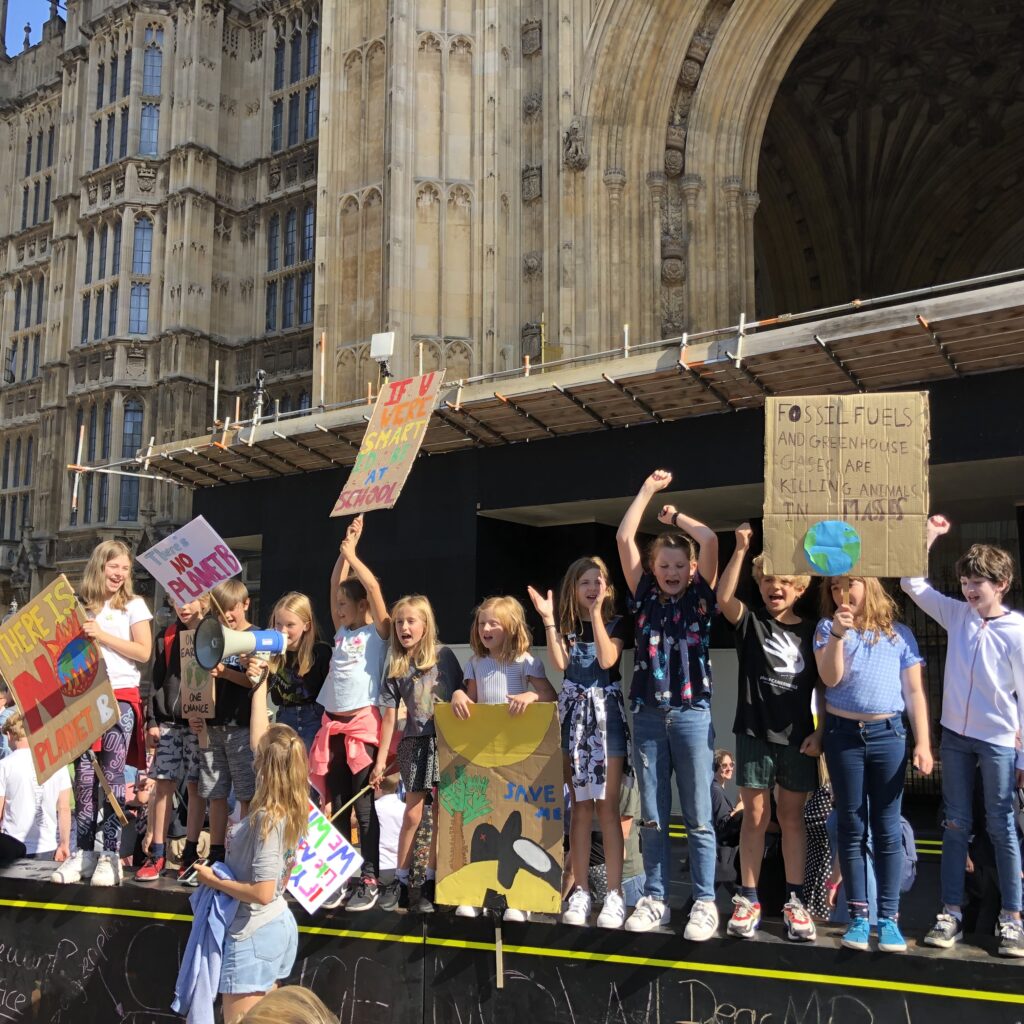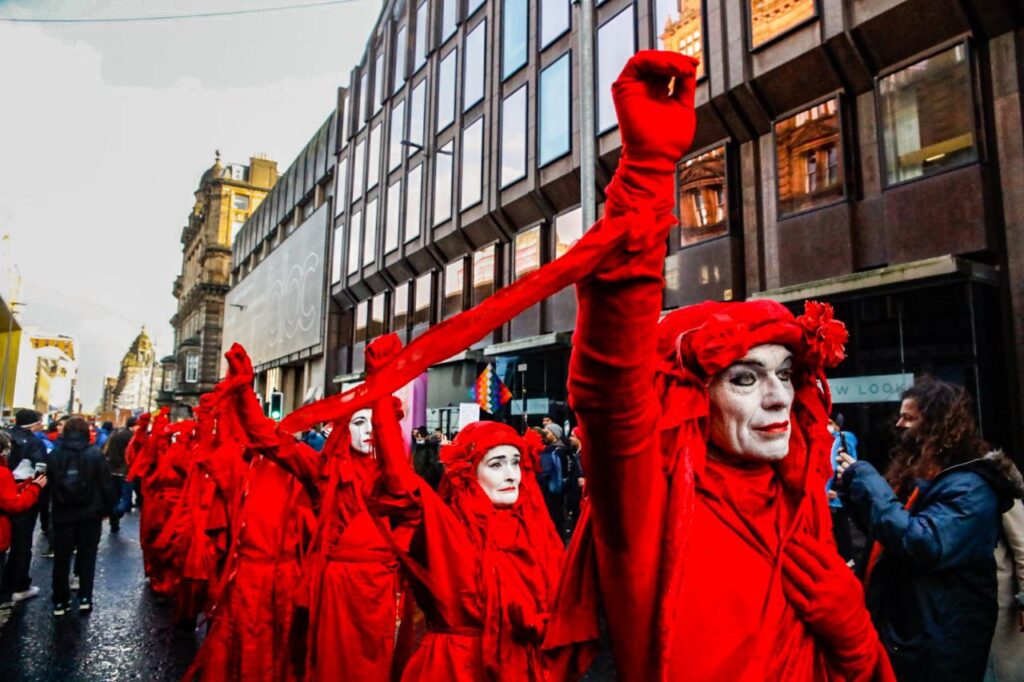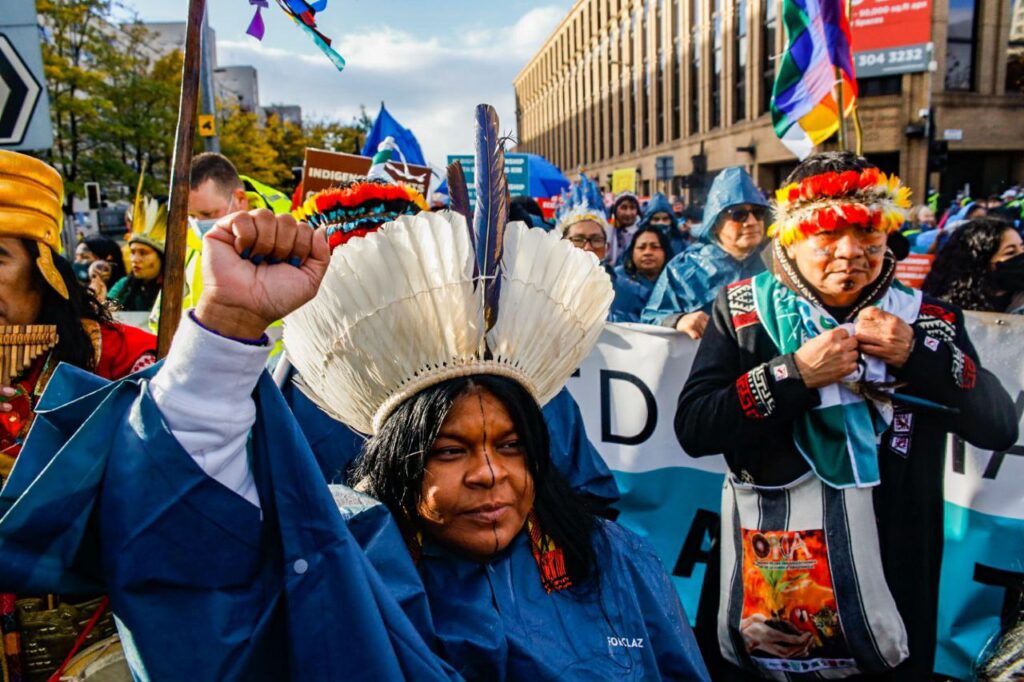As COP26 came to a close, a new global climate deal was announced by the conference President, Alok Sharma. What should have been a triumphant announcement of a new agreement between world governments to commit to limiting global warming to 1.5°C above pre-industrial levels moved Sharma to tears, as he apologised for a last minute change in the language. Intervention from India and China had altered the wording of a clause in the Glasgow Pact concerning unabated coal – the burning of coal without climate change mitigation technology – from ‘phase out’ to ‘phase down’, leading to outrage from European and vulnerable countries.
As world leaders wrestled over the wording in the Glasgow Pact, it brought the issue of the language we use to describe the climate crisis to the fore and highlighted how despite near global consensus on the scale of the emergency, this is an emotionally fraught topic where every word matters.

From a communications perspective, accurately conveying the severity of climate change whilst avoiding overwhelming your audience into anxiety and inertia is a fine balancing act. It is easy to feel overpowered by the sheer enormity of this all-encompassing, globally threatening issue. To put it simply, the language we use not only affects how we perceive an issue, but it also affects our ability to take action.
Climate anxiety vs inertia
In the last few years, as the true scale of the climate crisis has emerged, media institutions have updated their style guides to reflect the urgency of the issue. In 2019, the Guardian overhauled its editorial policy, instead of referring to “global warming” and “climate change”, the publication pledged to use terms such as “climate emergency”, “climate crisis” and “global heating.”
In a memo sent to staff, the BBC stated, “man-made climate change exists: If the science proves it we should report it.” Commenting on the BBC’s commitment to impartiality, the memo continued, “to achieve impartiality, you do not need to include outright deniers of climate change in BBC coverage, in the same way you would not have someone denying that Manchester United won 2-0 last Saturday. The referee has spoken.”
It’s positive that mainstream media has taken action to educate their audiences about the urgency of the climate emergency, however, this has had unintended consequences. The shift in the language used by the media has contributed to the changing perception of the public, but it has also given rise to new terms, such as “eco-anxiety” and “climate grief.” These are not just buzzwords, as research shows that 77% of students feel anxious about the climate crisis and the future. Another study found that for 45% of young people, climate anxiety significantly disrupts their daily lives.

If we are to inspire the next generation of climate leaders, we have a responsibility to ensure that the language we use inspires action and helps the public to understand how small, everyday lifestyle changes carried out by individuals can still have an incremental, positive impact on a global scale.
Communicate with shared values
The good news is that climate deniers are now a very small minority. The numbers show that regardless of where people place themselves on the political spectrum, concerns about the changing climate transcend these boundaries. However, these shared concerns don’t necessarily translate into unified action.

According to sociologist Kari Marie Norgaard, climate apathy is not due to a lack of knowledge or awareness, but because of painful emotions like helplessness, fear, and guilt. Psychologist Renée Lertzman echoes this sentiment, saying that bombarding people with frightening facts could actually lead them to shut down and shun the science. Instead, Lertzman recommends taking a conversational and compassionate approach. At first, this may seem to contradict the urgency of the situation, however, Lertzman says, “when we take a compassion-based approach, we are actively disarming defenses so that people are actually more willing and able to respond and engage quicker.” Afterall, if you started seeing a therapist to help come to terms with grief, they would not try to help you by shouting at you to “wake up” or by bombarding you with terrifying facts, as this would likely worsen your condition.
According to Lertzman, what this looks like in practice is reducing stress-levels by approaching others and crucially, ourselves with understanding and a willingness to listen to each other’s fears. Finding common ground, sharing our own stories and creating a support network create the conditions that will motivate people into action, which means listening rather than lecturing.
The research backs this up, a PIRC report tested communications messaging around climate change and climate justice to determine which messages resonated the most with the UK public. They found that messages emphasising solidarity, particularly with the global south, who are least responsible and most affected by climate change were the most engaging for audiences, and the most likely to inspire action. Whereas messaging which relied heavily on doom and gloom only served to make people feel despondent, and that it was futile to take any kind of action.

Image source: COP26 Coalition / Global Day of Action, Glasgow
When communicating about the climate crisis, it’s vital to accept rather than fight the negative emotions this may stir up, but also to focus on our shared values. The transition to a greener world needs to happen globally, so the ability to foster inclusive, cross-societal communication with localised messaging is key to inspiring behavioural change not just on a personal level, but a societal and global level.
Analysis from Ethical Team – The Purpose Driven PR Experts
Join Mailing List
